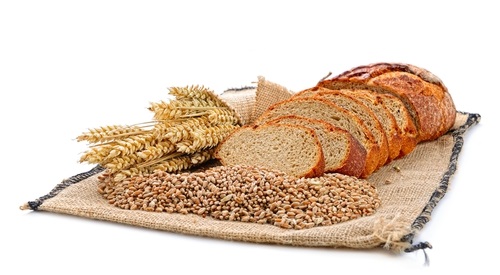 The fast-food culture has become an important part of our lives. Thanks to e-commerce, people can order their favourite food anytime they want. With many options to choose from, fast food has become the new norm. However, the rise in demand for processed foods has led to an increase in health-related issues like heart disease, obesity, high blood pressure and more.
The fast-food culture has become an important part of our lives. Thanks to e-commerce, people can order their favourite food anytime they want. With many options to choose from, fast food has become the new norm. However, the rise in demand for processed foods has led to an increase in health-related issues like heart disease, obesity, high blood pressure and more.
People are now moving towards healthier options in terms of their regular eating habits. The most underrated constituents of healthier foods are ‘whole grains’. In definitive terms, these are grains which have all three parts of a seed: bran, germ, and endosperm. The bran is an outer cover of the grain whereas the germ is a nutrient-packed part. The endosperm is the actual grain and is separately sold as refined grain. Whole grain is a combination of these three and is immensely healthy.
Below Are Some Of The Whole Grains Loaded With Health Benefits
Brown Rice:
Though brown rice is mostly consumed as a substitute for white rice, the former is a storehouse of nutritional benefits. Besides having a high level of fibre and protein, it contains Iron, Zinc, Manganese, Potassium and Calcium. These minerals perform a variety of functions like maintaining immunity, blood sugar levels, bone development and metabolism.
Corn:
Often considered to be a vegetable, corn is actually a grain rich in fibre and vitamin C. Fibre is extremely effective in regulating blood sugar levels and helps lower cholesterol. Vitamin C helps the body by boosting immunity and acts as an antioxidant. The presence of other nutrients like Vitamin B complex makes it a healthy whole grain food.
Oats:
Despite being a quick meal for breakfast, oats are one of the most essential and popular kinds of whole grains. They include a special variety of fibre called beta-glucan which acts powerfully in reducing cholesterol levels. Oats are rich in some essential minerals like Iron, Zinc and Manganese, necessary for carrying out several cellular processes.
Whole Wheat:
When choosing bread, ensure you buy one that contains ‘whole wheat’ as one of its main ingredients. Each serving of whole wheat bread contains 2 to 3 grams of fibre which is essential to your digestive system.
The next time you go shopping for groceries make a healthy choice by picking these alternatives over processed food.





 1800-270-7000
1800-270-7000





